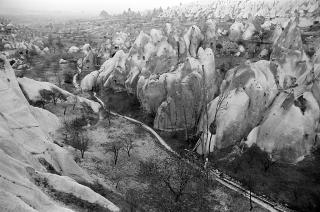Sorry to be less esoteric and entertaining in my writing recently, but I have been focused by necessity on issues pertinent to ongoing projects. The process distorts one’s perception of the world. I cannot really judge, for instance, the extent to which the apparent increase in coverage of climate change issues in the media is (a) the product of my increased focus on those stories, (b) the result of cyclical phenomena, like the release of IPCC reports, or (c) a demonstration of increased awareness – or at least increased newsworthiness – of the climate change situation. With that caveat stated, it certainly seems as though climate change related stories are getting top billing in the media to an increasing degree.
The front page of today’s Globe and Mail site features four articles on climate change. One is on climate change and Parliamentary politics, another deals with the proper role of scientists. There is a question and answer session, and finally an article on the impact of rising sea levels on Indonesia. Many organizations, including the BBC, now have dedicated portions on their websites to cover climate change news.
Even President Bush has acknowledged the need to take action. It’s enough to make one hope that a massive shift from talk to action might take place within the next few years, going beyond Kyoto and into the realm of mechanisms to substantially reduce greenhouse gas emissions and move into a post fossil fuel economy.
From the perspective of a concerned citizen, this all seems like good news. It is very important to reach as good an understanding about the likely costs and benefits of climate change as possible. Also essential is the development of political consensus to take action to prevent climate change and mitigate the impact. From the perspective of a graduate student working partially on climate change, it is all quite overwhelming. It makes one wonder how relevant one’s research will be in a year or two. Additionally, it makes it seem less likely that one can add anything new to the discussion. My hope is that by drawing together more types of information than most people will be examining, I will be able to develop some insights. The degree to which my thesis will be a real contribution to scholarship largely depends on it.

